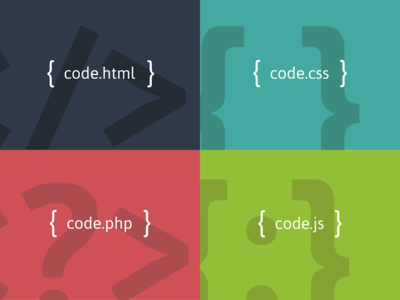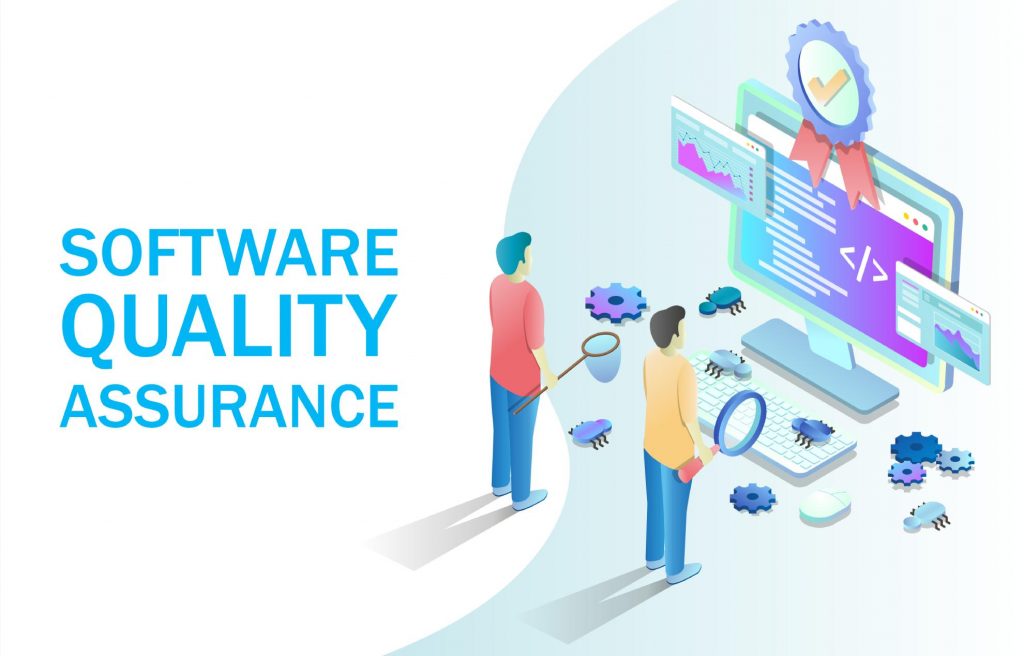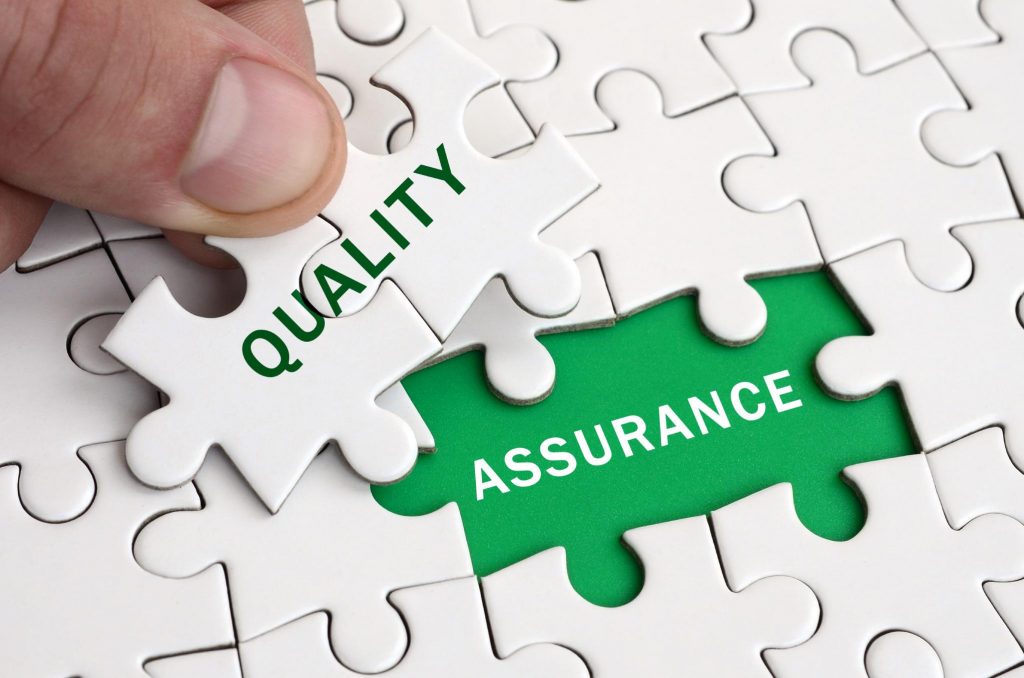Quality assurance has always been the key to success when releasing a software product. The process helps identify potential risks and provides solutions that can prevent minor slip ups from derailing your project, ensuring positive outcomes for everyone involved. Believe it or not, NASA had to learn how important software quality assurance is the hard way. In fact, it cost them a spacecraft named the Climate Orbiter that originally was sent to Mars to study this particular planet back in 1998. Unfortunately, they lost it on September 23th, 1999 due to a wrong command from Earth which had been done by the engineering team who didn’t convert the measurements that they had inputted into the commands from English units (pound-seconds) into metric standard (Newton-seconds). Such a “silly” mistake was worth USD $125 million as the cost of building the spacecraft alone without any launching and operations cost added up yet.
The event had truly highlighted the importance of software quality testing, reminding us all that thorough tests are the fundamentals to avoiding potential losses from badly written code. Then what does it take to become a perfect “warrantor” for your business? Let’s explore this concept today and uncover what it takes to become aspiring software quality testers.
Software quality testers - Who are they?
Software quality testers are the unsung heroes of the software industry, serving as vigilant gatekeepers who meticulously scrutinize every piece of code before it reaches end-users. With the utmost attention to detail, they employ a combination of manual testing methods and automated test suites to ensure that each program meets the highest standards for excellence in both design and safety. In essence, they act as the first line of defense against bugs, guaranteeing that no glitches slip through the cracks during the quality assurance stages.
Despite working predominantly in the early stages of software development, software quality testers wield significant influence over the final product. Serving as the end users’ advocates, software quality testers embody the customer’s perspective and play a vital role in ensuring that the company delivers a product that meets expectations and delights its users. Through their meticulous QA testing efforts, these dedicated individuals contribute to the seamless functioning of the software and the overall satisfaction of customers.

What does a software quality tester do?
As the masterminds behind the quality assurance process, software quality testers take on the crucial responsibility of anticipating and identifying any possible issues that may arise. Armed with their extensive knowledge, technical expertise, and cutting-edge tools, they work tirelessly to eliminate any bugs or glitches, ensuring that only fully functional software is released to end-users. In order to accomplish this, they perform a range of vital duties, including:
- Analyzing and detecting the unexpected issues
- Communicate with customers to know the software requirements and write the suitable test cases
- Work with functional teams to develop efficient testing systems
- Report work progress and major issues to project managers
- Design automated testing systems
- Conduct the quality testing methods, including automated and manual testing
- Give feedback and support the software design or function
Given that software testing is a complex process that demands collaboration among diverse teams with varying experiences and skills, software quality testers must exhibit a high level of adaptability and flexibility when faced with unforeseen circumstances. As a result, they must constantly strive to enhance their technical and soft skills to keep pace with emerging technology trends. In doing so, they remain at the forefront of their field, equipped with the tools and expertise needed to excel in their roles.
Furthermore, obtaining the ISTQB® Certified Tester certification is an expectation for software quality testers. ISTQB® Certified Tester certification is a globally recognized qualification in software testing. At SHIFT ASIA, the majority of the software quality testers hold this esteemed certification, demonstrating their expertise and commitment to delivering exceptional testing services. To further support testers’ professional growth, SHIFT ASIA organizes regular Hackathon contests, providing a platform for testers to showcase their skills and enhance their capabilities.
The essential skills that every software quality tester must have
Technical Skills
As a specialized profession that deals with the constant evolution of technology, software quality testing demands a continuously elevated standard of expertise. In order to meet this challenge, software quality testers are required to possess a range of advanced technical skills, which include:
Programming Languages: In today’s IT industry, programming languages have become increasingly essential for software quality testers. As popular programming languages like Ruby, Python, Java, and C# continue to gain traction, they allow not only developers but also testers to gain a comprehensive understanding of the software. This facilitates the identification and resolution of bugs, while also enabling testers to suggest enhancements to the user experience, thus promoting optimal software performance.
Front End Skills – HTML, CSS, & JavaScript: In addition to programming languages, proficiency in front-end languages can greatly benefit software quality testers in gaining a comprehensive understanding of their digital products. HTML serves as the foundation of any web page, allowing developers to include images and media. Meanwhile, CSS and JavaScript enhance the visual appeal of web pages, making them more engaging for users. Possessing expertise in front-end languages can be a valuable asset for software quality testers, as it enables them to identify and address issues in the early stages of development. Furthermore, they can investigate issues in greater depth, facilitating clear and accurate communication with developers.

Database Skills: As we navigate the Digital Era, databases are essential components for software, responsible for collecting vital data and business insights. This creates a growing demand for skilled testers with database expertise. As complexity and pace intensify in this realm, software quality testers take center stage, ensuring data quality, security, integrity, and accuracy throughout the development process.
API Testing Skills: Discover the intriguing world of API testing, where software quality testers delve into the complex world of application program interfaces (APIs) to guarantee optimal functionality, ironclad security, and exceptional performance. Equipped with technical skills and proficiency in using cutting-edge tools such as Postman, SoapUI, Katalon, and Studio, these testers ensure seamless API integration. Additionally, experts recommend mastery of APIs REST and SOAP to elevate their testing expertise to unrivaled heights.
- REST (REpresentational State Transfer) is the web standards-based architecture that harnesses HTTP to establish seamless communication between various internet systems. Witness the versatility it offers by supporting diverse data formats such as HTML, JSON, and XML, all while maintaining an objective, professional, and IT-centric approach.
- SOAP (Simple Object Access Protocol) is a standard XML protocol defined by the W3C standards for sending and receiving web service requests and responses between various applications used on different operating systems.
Unix / Bash Commands: To be clear, Unix is a multi-user, multitasking operating system that is used to manage computer resources, and Bash is a command-line interpreter that is used to implement commands in Unix. As a software quality tester, unlock the potential of these two to effortlessly install, uninstall applications and access log files, as well as navigating the base code and simplifying scripting test cases.
Soft Skills
A top-notch software quality tester isn’t just defined by their technical prowess; they must also possess a range of soft skills that contribute to their effectiveness. These valuable aptitudes complement their technical abilities, taking their expertise to new heights, such as:
Communication: Software development is a complicated process that needs harmonious coordination among the teams. Exceptional communication skills are crucial, empowering testers to master the art of listening, inquiring, and reporting while conveying vital information effectively. This mutual understanding fuels high-performance teamwork and paves the way for stellar results.
Test Planning and Strategy: Mastering test planning and strategy involves recognizing software objectives, crafting a comprehensive approach, and devising a well-structured timeline for seamless testing execution. This process goes beyond mere scriptwriting or bug-fixing and demands an all-encompassing perspective, astute problem-solving, and sound decision-making abilities to ensure successful outcomes.
Rational Analysis & Logical Thinking: A strong software quality tester embodies the power of rational and logical thinking, paving the way for precise error identification and insightful foresight. By scrutinizing every aspect, evaluating strengths and weaknesses, and gathering pertinent data, an adept tester emerges with the ultimate solution in hand.

Reporting: It may seem like an insignificant skill, but instead, it offers substantial benefits to software quality testers. By delivering comprehensive, succinct, and compelling reports while maintaining a professional demeanor, these testers can efficiently communicate the precise state of a project to relevant stakeholders, ultimately aiding in well-informed decision-making.
Conclusion
As modern software applications become increasingly intricate, the role of software quality testers comes to the forefront, necessitating heightened proficiency in skills, knowledge, and responsibilities. These testers must not only know everything surrounding the software quality assurance fundamentals inside and out, but also continuously strive to enhance their technical and soft skills, while staying current with global technological advancements. Choosing a career in software quality testing demands patience and perseverance amidst challenges, but the rewards come in the form of delivering valuable and efficient solutions for clients’ businesses.
ContactContact
Stay in touch with Us











